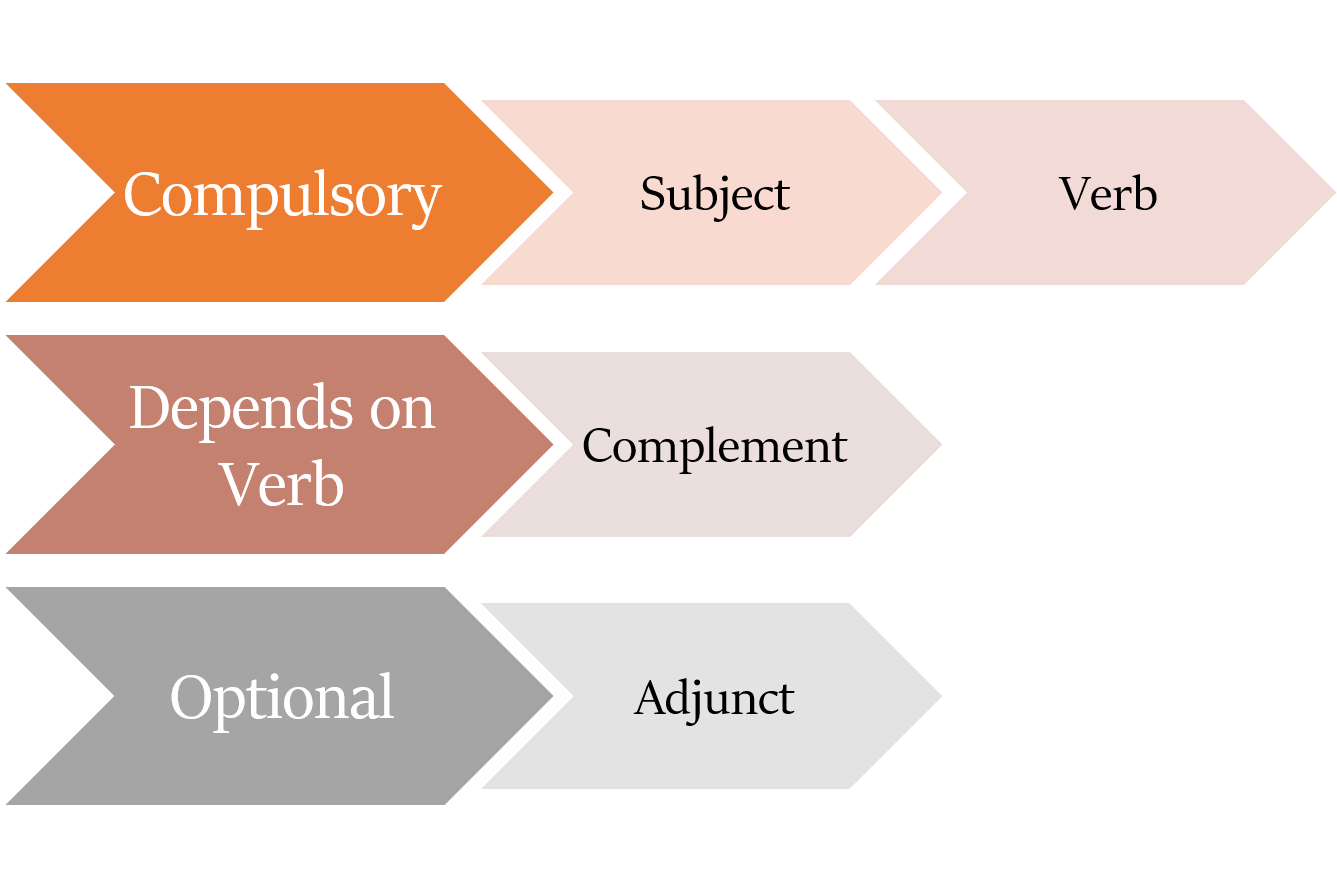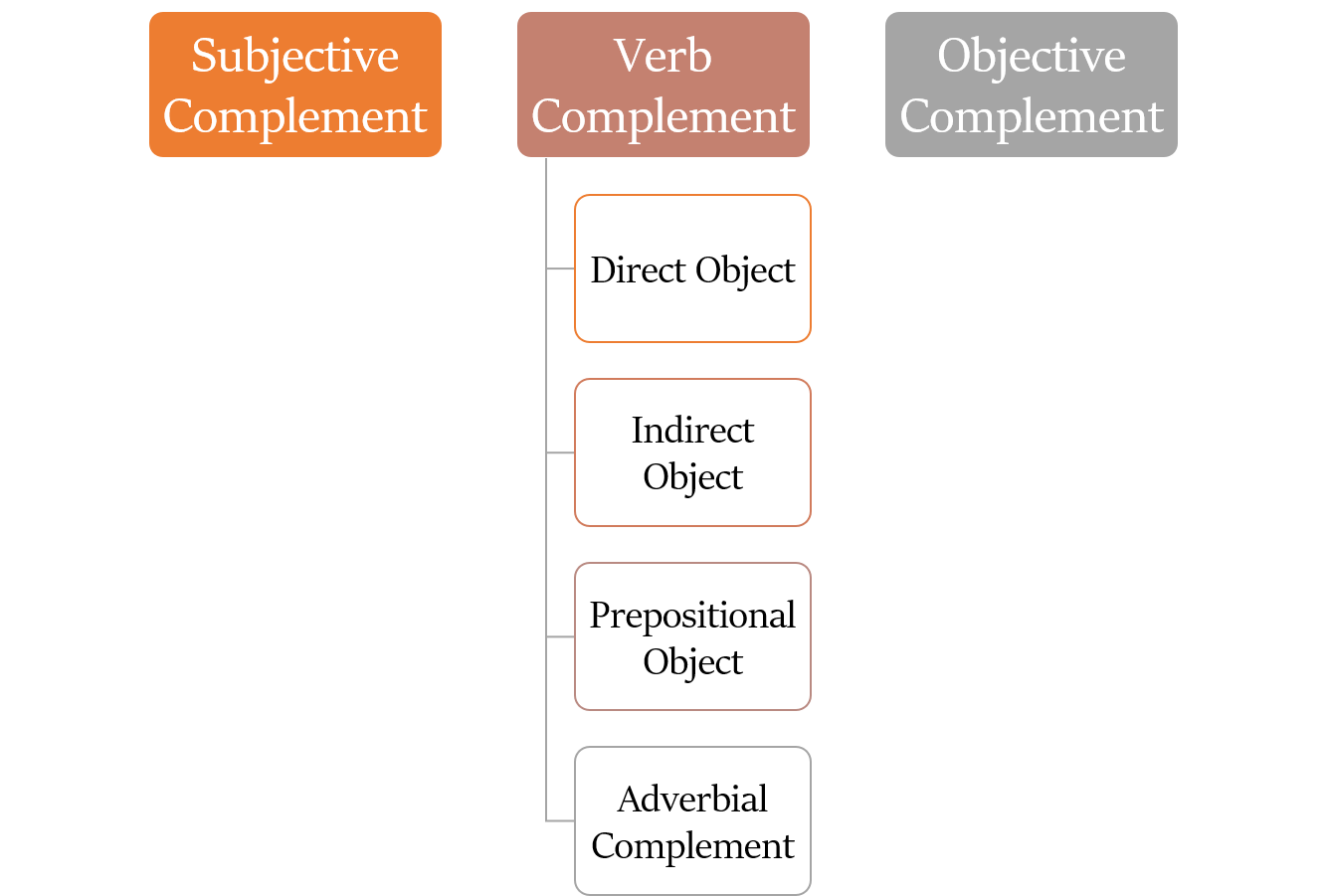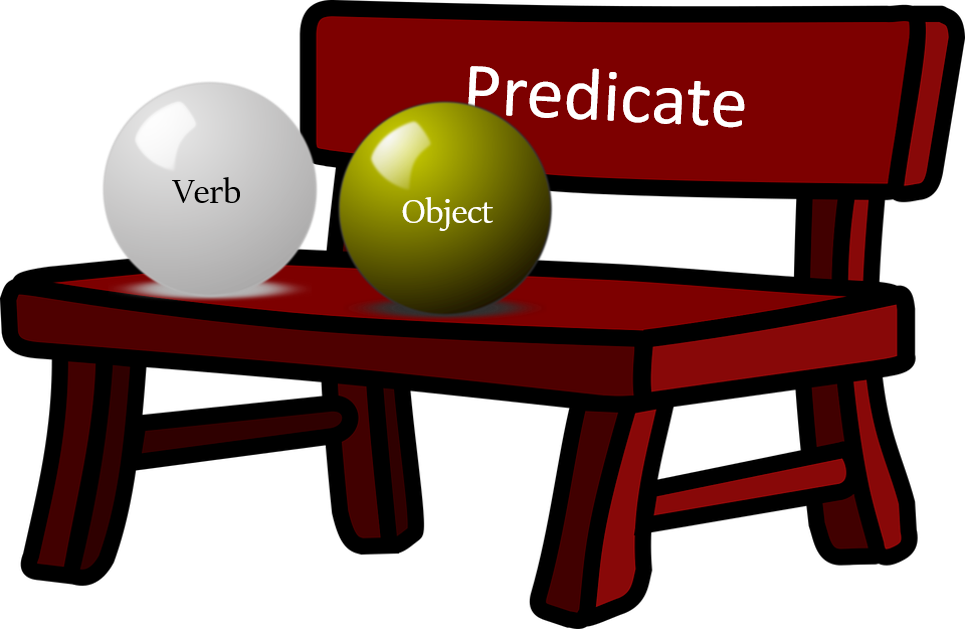Object
Parts of a Sentence

Types of Complements

Here we will focus on the Direct Object.
Object
Sentence structure: Subject + Verb + Object
Object – a noun or pronoun (person, place, animal, or thing) that receives the action of the verb.

Saurabh broke the glass. (Verb - broke; Object - the glass)
Recognizing Object
If we ask a verb what? or whom? - then the answer that is on the right side of the verb is the object of that verb (in declarative sentences).
The dog bit the security guard. (The dog bit whom?)
The people rang the bell. (The people rang what?)
Exception: What if the subject is its own direct object?
He killed him. (refers to two entities)
He killed himself. (refers to one entity)
What can be an object?
Just like subject, object may be a noun, noun phrase, pronoun or a subordinate clause.
Architects build buildings. (Object is a Noun)
The Rajputs of Mewad love fighting. (Object is a Gerund, working as a Noun)
The foolish owl tried to sing. (Object is an Infinitive, working as a Noun)
All emphatic people pity the poor. (Object is an Adjective, working as a Noun)
Software engineers often leave some bugs in the initial versions of the software. (Object is a Noun Phrase)
She likes getting up before the sun rises. (Object is a Gerund phrase, working as a Noun Phrase)
Allied soldiers tried to scale the cliff in Normandy beach. (Object is an Infinitive phrase, working as Noun phrase)
I know him. (Object is a Pronoun)
I do not know whether she will qualify the examination. (Object is a Subordinate clause)
Object-Word
Object-word - chief word (noun or pronoun) in the complete Object.
Object-word is not as significant as the Subject-word, as it has no influence on the main verb of the sentence.
She saw him.
Matthew watched them play.
Position of Object
Subject + Verb + Object
The subject usually comes before the verb and the object usually comes after the verb.
In passive voice it’s the other way round.
Saurabh broke the glass. (active voice)
The glass was broken by Saurabh. (passive voice)
Verbal Object
Verbals - they are infinitives, gerunds and participles
Verbals function as adjectives or nouns but they retain some of the characteristics of verb, e.g. they can take an object after them.
As a navy cadet, I was made to walk the plank. (to walk what? - the plank)
Driving a vintage car is a treat. (driving what? - a vintage car)
Watching the Delhi Half Marathon, I noticed one runner taking a lift on a bike. (watching what? - the Delhi Half Marathon)

Extra Books and Tools
If you prefer to learn via books, or want some good English Grammar books for reference purposes, you may read this article which enlists some of the books recommended by us.